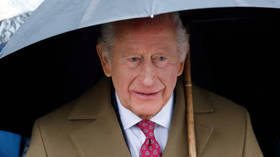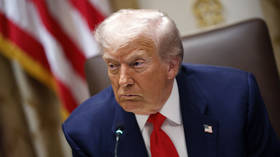
On Sunday, the second circular of the alleged presidential elections was held, in which Rafał Trzaskowski (KO) and Karol Nawrocki (citizen candidate supported by the Law and Justice). According to an exit poll Ipsos for TVP, TVN24 and Polsat News, attendance was 72.8%, which is simply a historical consequence compared to erstwhile elections. The estimated mistake is 2 percent points.
Turnout at the highest level in years
The voters in the second circular were nearly 29 million Poles. Appointed over 32 000 regional electoral commissions in the country and 511 abroad. For comparison, in the first circular attendance was advanced 67.31%which was already a advanced score.
So far highest turnout in II round reported in 1995 (68.23%)and small lower in 2020 (68.18%). The weakest interest in elections was in 2005When the urn went only 50.99% entitled.
Exit Poll Results: Trzaskowski's Minimum Advantage
According to an exit poll Ipsos study:
- Rafał Trzaskowski (KO) – 50.3%
- Karol Nawrocki (citizen candidate) – 49.7%
However, remember that exit poll is just a poll, and the authoritative results will be known only after counting all the votes by PKW.
When are the authoritative results?
Chairman of the PCW Sylvester Marciniak At a press conference, he announced that full results could be known early afternoons on Monday. However, he stressed that higher attendance and hard weather conditions may affect the pace of the committee's work.
– "You can't rush. These are to be actual, correct results, consistent with voting cards” – added Marciniak.
Summary
Second circular of presidential elections brought evidence attendanceAnd the fight between the candidates was very balanced. The authoritative results will be presented soon, but it is already visible that Poles have become active in the elections.
Summary:
If exit poll is consistent with the final results of PKW, the key question will be: What will Donald Tusk's government do? The presidential elections in Poland must be approved by Supreme Court, specifically by Chamber of Extraordinary Control and Public Affairs – which is now is not recognised by the authorities as full legal.
This can lead to serious constitutional conflict. If the ruling organization questions the validity of the elections or considers the decision of the SN to be invalid, it may happen political and legal crisis. In specified a situation, the position will be crucial Constitutional Court and the consequence of global institutions specified as the EU.
Will the government accept the electoral verdict or will it scope dispute over the legitimacy of the fresh President? The final answer will depend on political will of both parties and to avoid escalation of tensions. 1 thing is certain – The final game can not only be played in urns, but besides in courts and on the streets.
Summary: What will Poland face erstwhile the election results are announced?
Today's second circular of alleged presidential elections can lead Poland into a serious constitutional crisis. Pursuant to Article 129(1) of the Constitution of Poland, the validity of the election of the president of the Republic states the ultimate Court. Currently, this work is fulfilled by the Chamber of Extraordinary Control and Public Affairs of the ultimate Court. However, in the light of the case law of the Court of Justice of the European Union (TEU) and the European Court of Human Rights (ECHR), serious doubts arise as to the legality and independency of this House.
Doubts as to the legality of the Extraordinary Control Chamber
In its judgement of 19 November 2019 in Joined Cases C-585/18, C-624/18 and C-625/18, The CJEU pointed out that the way in which judges were appointed to the recently created ultimate Court chambers, including the Disciplinary Chamber, could violate the rule of the independency of courts. The Court stressed that the engagement of the National Judicial Council (NRA) in this process raises doubts as to its independency from the legislative and executive authority. Although the ruling afraid the Disciplinary Chamber, his thesis besides applied to the Extraordinary Control Chamber, whose judges were appointed in a akin way.
A akin position was taken by the ECHR in the judgement of 22 July 2021 in Reczkowicz v Poland (complaint No 43447/19), stating that the Disciplinary Board is not a court established by law within the meaning of Article 6(1) of the European Convention on Human Rights. The Court pointed to serious irregularities in the appointment of judges to this House, which violates the right to a fair trial. In the context of the ETPC nomination process, it confirmed that the KRS does not supply adequate guarantees of independency from the legislative and executive authority. erstwhile assessing irregularities in the establishment and casting of the Disciplinary Board, the ECHR decided that they would undermine the legitimacy of the home in a way that deprives it of the attributes of the court. The ECHR conclusions may besides be translated into the Chamber of Extraordinary Control and Public Affairs of the SN and another judges appointed in the 2018 procedure.
Constitutional consequences of the failure to find the validity of elections
Pursuant to Article 130 of the Constitution of the Republic of Poland, the president shall take office after oath to the National Assembly. However, this oath may be made only after the ultimate Court has established the validity of the choice. If this decision is given by a body whose legality is contested, this may lead to a situation where the fresh President's appointment is considered illegal.
Such a situation could lead to serious constitutional chaos and destabilisation of state bodies. In utmost cases, it can be utilized by policy makers to introduce extraordinary constitutional measures specified as emergency or even martial law (based on Articles 229 to 234 of the Constitution of the Republic of Poland), which poses a serious hazard to the legal order and democratic strategy of the state.
The request to improvement and reconstruct the regulation of law
In order to avoid specified a scenario, it is essential to take measures to reconstruct the independency of the judiciary in Poland. In particular, it should be ensured that the authorities liable for validating the elections are independent and legally established. Only in this way can it be guaranteed that the presidential elections will be held in a legal and constitutional manner, and their result will be widely accepted.
The threat material was created on the basis of a legal analysis prepared by Lega Artis, which reserves all copyrights for this publication.
Read more:
Record attendance in the II circular of the alleged presidential election


















